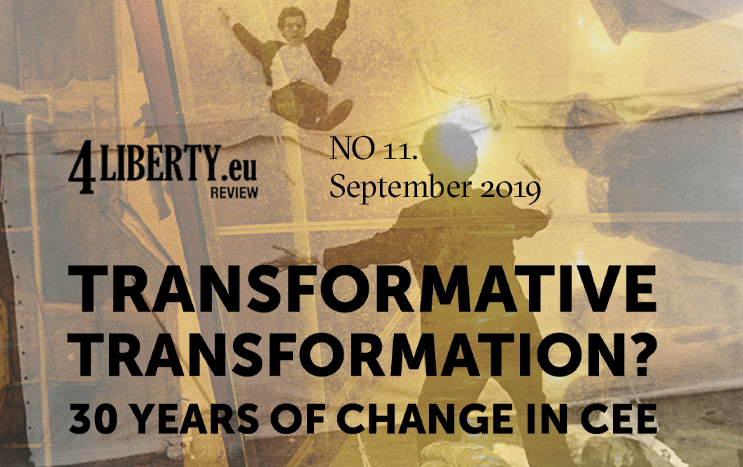
This year it was Tuesday. A terrible heat wave had been affecting Warsaw for over a week. Temperatures were above 30 degrees and everybody was looking for some shade. Those who could, spent their afternoons in parks, and many people voluntarily stayed overtime in offices to enjoy the AC.
Download full article:
MIŁOSZ HODUN THE END OF AN ERA RANKINGS WILL TELL YOU THE TRUTH
At the same time, we started to gather on Constitution Square – a windless and shade-less spot downtown Warsaw. Just like last year, and the year before. We couldn’t imagine not being there. It was the 4th of June.
Problematic Anniversary
June 4th is the anniversary of the first Polish free elections in 1989. Or rather, partly free, to be precise – only 35% of the seats in the Sejm would be open to all comers. A newly created Senate was elected freely. It was turned into a ballot on communist rule. As a result, the democratic opposition won all of the available seats in the Sejm and 99 out of the 100 Senate seats.
For us, for my friends from Projekt: Polska, June 4th has always been a happy holiday. This is why for many years we have organized the Toast for Freedom, held on the Constitution Square in the capital of Poland, where the democrats had their headquarters before the 1989 elections.
Every year, hundreds of people join us – average Varsovians, some of who still remember the struggle against the communist regime, together with those who later became ministers or presidents of Poland1.
However, for the last four years, these meetings have been very different; less happy, more reflexive. During this time, Poland has been governed by a party that can be described as nationalistic, illiberal, anti-democratic, and anti-European – the Law and Justice (PiS) party.
Some commentators say that the PiS’s regime has ended an era of Polish transformation. A conservative commentator Paweł Musiałek wrote that PiS’s success is based on the negation of the “transformation thinking”2.
One of the reasons why PiS won the 2015 elections was its narrative about the transformation. It was so different than the consensus of all other political forces – from post-communists, to conservatives, to liberals – who did not contend the Polish success story that had started back in 19893.
PiS not only wanted to symbolically build a new Fourth Republic, once and for all cutting the connections of the interim period of Polish history from its communist roots, but also its entire platform was built on criticism of the transformation.
Jarosław Kaczyński, the party leader, has talked a lot about conflict of interests between beneficiaries of the transformation and those who were not able to succeed.
According to Kaczyński, this consensus about the transformation present in political discourse is a fight for the interests of those who could – sometimes fairly, but sometimes not – benefit from the transformation and want to keep their position, and those whose situation has been getting constantly worse.
“Vast majority of Poles is paying for conserving the system,”4 the PiS’s leader stressed. In Mr. Kaczyński’s opinion, this fight is about Poland’s development and whether will it be for everybody or only for select groups.
What Mr. Kaczyński serves his followers in generalized terms, providing historical underpinnings of the new regime, his militant acolytes translate into a more pragmatic stance. Just like Prime Minister Mateusz Morawiecki who talked about cities that won and cities that lost, “there are cities that have been on the peripheries of transformation.
There are cities that used to develop very well but in the transition their chances were stolen, they lost their social and economic meaning”5, – he claimed. And he emotionally described the losers’ situation as “apathy, passivity, and inactivity”. In this view, the new republic can be established only as an outcome of a conflict between these cities, and the underdeveloped cities must prevail.
PiS has presented itself as a savior that is going to protect the people from transformation. Just like Putin in Russia.
DOWNLOAD FULL ISSUE (PDF):
Single Page Spread
1 http://warszawa.wyborcza.pl/warszawa/7,54420,24864213,toast-za-wolnosc-z-bronislawem-komorowskim-tradycyjne-spotkanie.html [in Polish]
3 There were some radical and/or anti-establishment parties that criticized Polish transformation, including Samoobrona (Self-Defence) or Razem, (Together) mostly for its economic consequences, but PiS was the first major party who questioned the transformation in general, making this approach the basis of its programme.





















